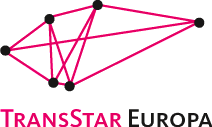PRAGUE, June 2015
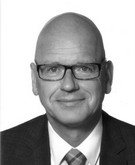 Manfred Weinberg
Manfred Weinberg
Manfred Weinberg studied German Philology, Biology, Philosophy and Pedagogy at the University of Bonn,graduating in 1992 with a dissertation on Hubert Fichte (Akut. Geschichte. Struktur., 1993 [Acute. History. Structure.]). He conducted his postdoctoral work at the Graduate College entitled Theorie der Literatur [Theory of Literature] of the University of Konstanz. After that he was scientific coordinator of the Special Research Project 511 funded by the German Research Foundation (DFG) called Literatur und Anthropologie [Literature and Anthropology] (1996–2001) and the Forschungszentrum für den wissenschaftlichen Nachwuchs [Research Center for Young Academics] (2001–2003), as well as substitute professor at the chairs of Prof. Dr. Gerhart von Graevenitz and Prof. Dr. Albrecht Koschorke (2003–2010). In 2001 he completed his habilitation on recollection/memory (“Das unendliche Thema” / [The Neverending Issue] (2006)). In 2006 he was appointed adjunct professor. Since September 2010 he has the professorship of Modern German Literature at the Charles University in Prague (as a DAAD long-term lecturer) and since September 2011 he holds the position as deputy head of the Department of Germanic Studies at the Charles University Prague. He is a member of the Academic Advisory Board of the Zeitschrift für interkulturelle Germansitik [Journal of Intercultural German Studies] as well as of the Arbeitsstelle für deutsch-mährische Literatur [Research Centre for German-Moravian Literature] at the Palacký University Olomouc; co-editor of a journal entitled Interkulturalität. Studien zu Sprache, Literatur und Gesellschaft [Interculturality. Studies on Language, Literature and Society]. Together with Irina Wutsdorff (University of Tübingen) et al. he is the head of the international and interdisciplinary research network called Prag als Knotenpunkt der europäischen Modernen [Prague as Intersection of European Modernities].
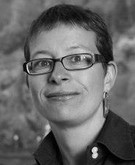 Claudia Dathe
Claudia Dathe
Claudia Dathe completed her studies in Business Administration and Translation Studies (Russian, Polish) in Leipzig, Pjatigorsk (Russia) and Krakow. From 1997 to 2004 she was a lector for the German Academic Exchange Service (DAAD) in Kazakhstan and Ukraine. After returning to Germany, she worked as a freelance translator for the Ukrainian, Russian and Polish languages and conducted tutorials for German and Ukrainian up-and-coming translators. Since 2009 she works at the University of Tübingen within the framework of the “Textabdrücke – Literary Translation” project and currently as the coordinator of the EU-funded project “TransStar”. Her professional and research interests focus on the linkages and asymmetries of East and Central European literary spaces. Claudia Dathe translated into German – amongst others – the following Ukrainian authors: Serhiy Zhadan, Olexandr Irvanez, Tanja Malyarchuk and Maria Matios.
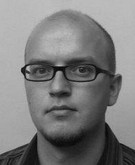 Štěpán Zbytovský
Štěpán Zbytovský
Štěpán Zbytovský studied German Studies and Protestant Theology at Charles University in Prague. In 2009 he graduated with a conjoint-degree from Prague and Konstanz with a doctoral thesis on the function of mythological narratives in the context of literary reflexion of history, especially in Hermann Kasack’s and Arno Schmidt’s works entitled Mythology and History: Studies on the Literature of German Romanticism and Postwar Period (1945-1953). Since February 2009 he is employed at the Institute of Germanic Studies at Charles University and the deputy director since summer 2013. His teaching and research interests include: introduction to literary science, history of German-speaking literature in Bohemia and interaction concepts between German-speaking culture and Czech culture in Bohemia. He regularly offers seminars on theory and praxis of literary translation.
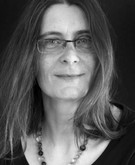 Kristina Kallert
Kristina Kallert
Born in 1962 in Weissenburg, after she studied Eastern Slavic Studies and German Studies in Regensburg and St. Petersburg she went to the Masaryk University in Brno as a DAAD lector. There she successfully completed her state examination in 1998 in the field of Czech language and literature.
At the beginning of her translation activities are her translation of Ivan Cankar’s Nina(1906/1999) a translation from Slovenian and already from Czech Bartoloměj Daniel’sGeschichte der Roma in Böhmen, Mähren und der Slowakei [The History of Roma in Bohemia, Moravia and Slovakia] (1994/1998), the life work of the first Roma author of the Czech Republic. Kristina Kallert concentrates on works of fiction but increasingly devotes herself to translating humanities publications – in both areas older as well as contemporary authors are represented. The latest published translations are J.M. Langer: Die neun Tore [The Nine Goals] (1937/2012), M. Ryšavý: Dimitrij der Heiler[Dmitry, the Healer] (2010/2012), K. Čapková, M.Frankl: Unsichere Zuflucht. Die Tschechoslowakei und ihre Flüchtlinge aus NS-Deutschland und Österreich 1933-1938 [Uncertain Asylum: The Czech Republic and its Refugees from Nazi Germany and Austria from 1939 to 1938] (2010/2012).
Kristina Kallert has collaborated on the Czech library (B. Němcová, J. Zeyer, J. Karásek ze Lvovic, J. Jungmann, V. Kramář), she translates for the Dresden Poetry Prize and will contribute to the Vladimir Holan edition provided by U. Heftrich.
In Leipzig, Tübingen and Znojmo she has lead translator workshops numerous times. In 2004 she received the Leipzig Fähre Prize for literary translation, she was an awardee of a stipend at the Literary Colloquium in Berlin (2004) and the Institute for Human Sciences (IWM) in Vienna (Paul Celan Fellowship, 2007); in winter of 2010 she was a translator in residence in Tübingen. She is a part-time lector for Czech at the Institute for Slavic Studies of the University of Regensburg since 2005.
TÜBINGEN, Mai 2015
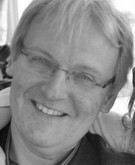 Matthias Jacob studied East and South Slavic Philology, Modern German Literature and Art History in Tübingen and Moscow. In the 1980s he conducted numerous study visits to Bosnia and Herzegovina. From 1999 until 2004 he was research assistant at the chair for Slavic Philology (literary sciences) at the Department for Slavic Studies of the University of Tübingen. During this time he was also course instructor in adult education (Russian literature). Today, he lives with his wife and daughter in Herrenberg, located between Stuttgart and Tübingen. He conducts introductory literary seminars as assistant lecturer primarily in the area of South-Slavic literatures, writes reviews (fort he journal Buchmarkt) and translates fiction and scientific texts from Croatian, Serbian and Bosnian as well as Russian.
Matthias Jacob studied East and South Slavic Philology, Modern German Literature and Art History in Tübingen and Moscow. In the 1980s he conducted numerous study visits to Bosnia and Herzegovina. From 1999 until 2004 he was research assistant at the chair for Slavic Philology (literary sciences) at the Department for Slavic Studies of the University of Tübingen. During this time he was also course instructor in adult education (Russian literature). Today, he lives with his wife and daughter in Herrenberg, located between Stuttgart and Tübingen. He conducts introductory literary seminars as assistant lecturer primarily in the area of South-Slavic literatures, writes reviews (fort he journal Buchmarkt) and translates fiction and scientific texts from Croatian, Serbian and Bosnian as well as Russian.
Publications: Scientific and journalistic articles on the literature of Russia and South Slavic countries. Literary translations (amongst others): poetic volumes by Andrijana Škunca, Luko Paljetak, Nikica Petrak and Snežana Minić; collaboration on the anthology „admission ticket – Ulaznica. Serbia: A Panorama of Poetry oft he 21st Century“ (2011) and the poetry volume Burn, Baby, Burn by Zvonko Karanović (2013).
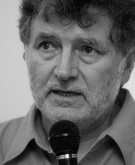 Radovan Charvát after completing his studies in mathematics he has worked as a freelance translator and journalist since 1984. In 1987 he spent one year in Africa. From 1989 to 1990 he studied German, English and American studies at the J.W. Goethe University in Frankfurt aM (literary theory, German literature of the 19th century, slang in American English). He translates screenplays into German, conducts simultaneous translations of films on TV and movies, newspaper articles (Literární noviny, Lidové noviny).
Radovan Charvát after completing his studies in mathematics he has worked as a freelance translator and journalist since 1984. In 1987 he spent one year in Africa. From 1989 to 1990 he studied German, English and American studies at the J.W. Goethe University in Frankfurt aM (literary theory, German literature of the 19th century, slang in American English). He translates screenplays into German, conducts simultaneous translations of films on TV and movies, newspaper articles (Literární noviny, Lidové noviny).
Cooperation with: Austrian Cultural Forum Prague, ARD Studio Prague, Goethe Institute Prague (readings), Suhrkamp Publishers in Frankfurt, Hanser Publications Munich, Aufbau Publishers Berlin and Volvox Globator, Prostor, Paseka, Opus and Argo (all in Prag).
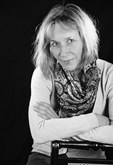 Dagmar Leupold was born in 1955 and studied German studies, philosophy and comparative literature studies in Marburg, Tübingen und New York. She completed her PhD in 1993 an der Graduate School der City University of New York.
Dagmar Leupold was born in 1955 and studied German studies, philosophy and comparative literature studies in Marburg, Tübingen und New York. She completed her PhD in 1993 an der Graduate School der City University of New York.
Since 1985 she is a freelance writer and has to date published a number of literary publications: poetry volumes, short prose and novels such as: „Eden Plaza“ (2002), „Nach den Kriegen“ [After the Wars] (2004), „Die Helligkeit der Nacht. Ein Journal“ [The Holiness of the Night: A Journal] (2009). Her latest is the novel „Unter der Hand“ [On the Quiet] (Jung und Jung).
A selection of awards she has received: Aspect Prize for the best prose debut (1992) and the latest the Tukan Prize of the city of München.
Since 2004 Dagmar Leupold coordinates “Studio Literature and Theatre” at the University of Tübingen.
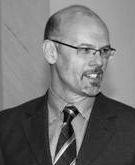 Andy Jelčić studied German and English studies as well as the two-year post-diploma studies program on literary theory at the Philosophical Faculty of the University of Zagreb. Since 1988 he works as a freelance translator, author and journalist and has completed numerous translations of non-fiction and fiction as well as contributions to literary journals and daily newspapers. For his translation Robert Musil’s Der Mann ohne Eigenschaften [The Man Without Qualities] he received the national prize for the best translation.
Andy Jelčić studied German and English studies as well as the two-year post-diploma studies program on literary theory at the Philosophical Faculty of the University of Zagreb. Since 1988 he works as a freelance translator, author and journalist and has completed numerous translations of non-fiction and fiction as well as contributions to literary journals and daily newspapers. For his translation Robert Musil’s Der Mann ohne Eigenschaften [The Man Without Qualities] he received the national prize for the best translation.
Andy Jelčić works in a diversity of theatres, architecture associations and museums, amongst others the Museum for Contemporary Art in Zagreb, the Museum for Modern and Contemporary Art in Rijeka, the Center for Art and Media in Karlsruhe, the Camera Austria, etc. In addition he is the Croatian representative and the vice president of CEATL, he leads the group “copyright and digital rights” and member of the editing board of the PETRA project in Brussels.
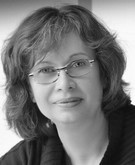 Alida Bremer was born in 1959 in Split, Croatia, and completed her degree in comparative literature studies, romance, Slavic and German studies in Belgrade, Rome, Saarbrücken and Münster. For many years she worked as a research assistant and lector at the universities of Münster and Giessen. She is a freelancer at the S. Fischer Foundation and was awarded a Border Crosser research grant by the Robert Bosch Foundation for the year 2008-2009. She is also the acting manager of the project “Croatia as Focus Country at the Leipzig Book Fair in 2008”. Alida Bremer has translated numerous Croatian authors into German, i.a. Ivana Sajko, Slavenka Drakulić and Edo Popović.
Alida Bremer was born in 1959 in Split, Croatia, and completed her degree in comparative literature studies, romance, Slavic and German studies in Belgrade, Rome, Saarbrücken and Münster. For many years she worked as a research assistant and lector at the universities of Münster and Giessen. She is a freelancer at the S. Fischer Foundation and was awarded a Border Crosser research grant by the Robert Bosch Foundation for the year 2008-2009. She is also the acting manager of the project “Croatia as Focus Country at the Leipzig Book Fair in 2008”. Alida Bremer has translated numerous Croatian authors into German, i.a. Ivana Sajko, Slavenka Drakulić and Edo Popović.
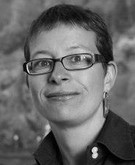 Claudia Dathe
Claudia Dathe
Claudia Dathe completed her studies in Business Administration and Translation Studies (Russian, Polish) in Leipzig, Pjatigorsk (Russia) and Krakow. From 1997 to 2004 she was a lector for the German Academic Exchange Service (DAAD) in Kazakhstan and Ukraine. After returning to Germany, she worked as a freelance translator for the Ukrainian, Russian and Polish languages and conducted tutorials for German and Ukrainian up-and-coming translators. Since 2009 she works at the University of Tübingen within the framework of the “Textabdrücke – Literary Translation” project and currently as the coordinator of the EU-funded project “TransStar”. Her professional and research interests focus on the linkages and asymmetries of East and Central European literary spaces. Claudia Dathe translated into German – amongst others – the following Ukrainian authors: Serhiy Zhadan, Olexandr Irvanez, Tanja Malyarchuk and Maria Matios.
LJUBLJANA, April 2015
 Lydia Nagel studied Slavonic Languages and Cultural Science in Berlin, Belgrade and Moscow. From 2008 to 2010 she managed an intern programme for Ukrainian and Belorussian students in the state of Brandenburg. Currently, she teaches at the Department of Slavonic Studies of the University of Vienna. She lives in Berlin and Vienna and translates from various Slavonic languages into German, mainly contemporary prose and drama. She is a member of the project management team of Drama Panorama, an open forum for German and international translators of dramatic literature
Lydia Nagel studied Slavonic Languages and Cultural Science in Berlin, Belgrade and Moscow. From 2008 to 2010 she managed an intern programme for Ukrainian and Belorussian students in the state of Brandenburg. Currently, she teaches at the Department of Slavonic Studies of the University of Vienna. She lives in Berlin and Vienna and translates from various Slavonic languages into German, mainly contemporary prose and drama. She is a member of the project management team of Drama Panorama, an open forum for German and international translators of dramatic literature
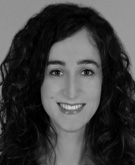 Tjaša Šket
Tjaša Šket
Tjaša Šket graduated in Translation Studies (English, German and Slovene) from the Department of Translation at the University of Ljubljana. In 2013 she completed her Masters in Conference Interpreting at the Department of Translation Studies at the University of Graz. During her studies, she participated in various programmes and internships including DAAD, Erasmus and a DGT Translation internship. In 2009 and 2010 she spent several months in Berlin, England and Luxembourg studying and working. She has been working as a freelance translator and interpreter for English and German.
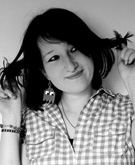 Anja Wutej was raised bilingual (Slovenian, German). She studied in the Department of Translation of the Faculty of Humanities at University of Ljubljana and continued her studies at the Faculty of Criminal Justice and Security in Maribor. During her studies she was awarded different scholarships (Erasmus, DAAD, the national Zois scholarship for talented students) and spent one semester in Lisbon and one month in Berlin. She participated in various projects (translations for HALMA, Poetikon and for UNIKUM, the cultural center of the university in Klagenfurt). In her free time she enjoys acting, filmmaking, singing and handicrafts.
Anja Wutej was raised bilingual (Slovenian, German). She studied in the Department of Translation of the Faculty of Humanities at University of Ljubljana and continued her studies at the Faculty of Criminal Justice and Security in Maribor. During her studies she was awarded different scholarships (Erasmus, DAAD, the national Zois scholarship for talented students) and spent one semester in Lisbon and one month in Berlin. She participated in various projects (translations for HALMA, Poetikon and for UNIKUM, the cultural center of the university in Klagenfurt). In her free time she enjoys acting, filmmaking, singing and handicrafts.
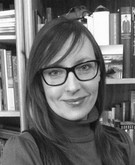 Daniela Kocmut
Daniela Kocmut
She was born in Maribor in 1980. In 1991 she moved to Austria and grew up in Hermagor, Carinthia; she lives in Graz, works as a translator and interpreter, and teaches Slovene. She is currently an assistant at the literary journal LICHTUNGEN and teaches Slovene in the program treffpunkt sprachen at the University of Graz. She studied Translation Studies in Graz and Dublin. Since 2004 Daniela Kocmut has translated primarily literary and technical texts from various fields and languages (German, Slovene, English and Croatian). She has published numerous literary translations into German: Luzias Augen and Der Baum ohne Namen by Drago Jančar,Die verborgene Harmonie by Katarina Marinčič, Alle meine Kriege, Plötzlich wurde es dunkel by Maruša Krese, and Wasserlinge by Veno Taufer She regularly participates in literary events, especially in Graz and Maribor, and writes poetry in German and Slovene.
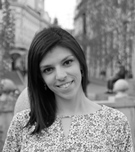 Tina Štrancar
Tina Štrancar
Foto © Andrej Lovšin
Tina Štrancar was born in Ljubljana, Slovenia in 1985. She studied German language and literature at the Faculty of Arts, University of Ljubljana, after which she continued her studies at the doctoral level in literary studies in Ljubljana and Berlin (doctoral thesis: The Discourse of Memory in Contemporary German Family Narratives). She has received a number of grants for her scholarly and translation work (DAAD, Robert Bosch Stiftung, Meeting of translators at the Literarisches Colloquium Berlin, etc.). Since 2008 she has been translating fiction, poetry, and children’s literature from German into Slovenian (including Bleutge, Bodrožič, Camenisch, Dinev, Erpenbeck, Hacker, Hermann, Kehlmann, Ransmayr, Schwitter and Stavarič) and is a member of the Slovenian Association of Literary Translators (DSKP). She spends her time between Berlin and Ljubljana.
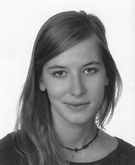 Irena Smodiš was born in 1990 in Ljubljana. She grew up in Ljubljana but spent some years in Vienna and Berlin. At the moment she is writing her master thesis at the Department of German, Dutch and Swedish at the Faculty of Humanities of the University of Ljubljana. She translates from German to Slovene. Other languages: English, Croatian, Spanish, Swedish. She works as a German teacher and works at the editorial Beletrina. In the TransStar project she translated texts from Eugen Ruge and Peter Licht.
Irena Smodiš was born in 1990 in Ljubljana. She grew up in Ljubljana but spent some years in Vienna and Berlin. At the moment she is writing her master thesis at the Department of German, Dutch and Swedish at the Faculty of Humanities of the University of Ljubljana. She translates from German to Slovene. Other languages: English, Croatian, Spanish, Swedish. She works as a German teacher and works at the editorial Beletrina. In the TransStar project she translated texts from Eugen Ruge and Peter Licht.
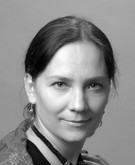 Amalija Maček
Amalija Maček
From 1995 to 2001, after graduating in German Language and Literary Studies and Hispanic Studies, she worked as a freelance translator and interpreter. As a student and an alumna, she pursued further education (through various scholarships: DAAD, Schritte, Sommerakademie LCB, etc.) in Germany, Austria and in Spain. Since 2001 she has worked at the Department of Translation at the University of Ljubljana’s Faculty of Humanities, where she mainly teaches translation from German into Slovene. She has published numerous scholarly and newspaper articles and reviews. Since 2008 she heads the master’s program in Interpreting Studies (a member of EMCI). She coordinated the EULITA and TRAFUT projects for Slovenia and is also an accredited conference interpreter, works for EU institutions, is a member of the Slovene Book Agency’s committee for the promotion of Slovene literature abroad and, first and foremost, is a literary translator from German into Slovene (Mora, Brecht, Kafka, Winkler, Pollack, Peltzer, Muschg, Kehlmann, Aichinger, etc.).
 Claudia Dathe
Claudia Dathe
Claudia Dathe completed her studies in Business Administration and Translation Studies (Russian, Polish) in Leipzig, Pjatigorsk (Russia) and Krakow. From 1997 to 2004 she was a lector for the German Academic Exchange Service (DAAD) in Kazakhstan and Ukraine. After returning to Germany, she worked as a freelance translator for the Ukrainian, Russian and Polish languages and conducted tutorials for German and Ukrainian up-and-coming translators. Since 2009 she works at the University of Tübingen within the framework of the “Textabdrücke – Literary Translation” project and currently as the coordinator of the EU-funded project “TransStar”. Her professional and research interests focus on the linkages and asymmetries of East and Central European literary spaces. Claudia Dathe translated into German – amongst others – the following Ukrainian authors: Serhiy Zhadan, Olexandr Irvanez, Tanja Malyarchuk and Maria Matios.
Ana Dejanovič received a BA degree in Translation from the Department of Translation at the Faculty of Humanities of the University of Ljubljana in 2012. Since October 2012 she has been a student of Interpreting (MA) at the Department of Translation in Ljubljana. She translates from German to Slovene.
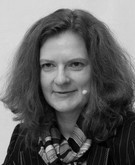 Tanja Žigon
Tanja Žigon
Graduated in German Language and Literature and History. From 1998 to 2004 she worked and published as a freelance researcher. In 2004 and 2007 she conducted research within various projects and scholarships in Udine, Vienna and Munich. In 2008 she received a doctorate in Literary Studies. Since 2003 she has been employed at the Faculty of Arts in Ljubljana and is an assistant professor of Translation Studies. Since 2013 she has headed the research program Intercultural Literary Studies, financed by the Slovene Research Agency. She is a member of the consortium of the TransStar EU project, and she is the coordinator of the Slovene part of the project. Her research focuses on German-Slovene relations and interactions and on culture-oriented aspects of Translation Studies. Tanja Žigon is the author of numerous research articles and two books that deal with German-Slovene cultural contacts and connections between nineteenth-century newspapers and literary publications in Carniola. She translates from German into Slovene, especially historical texts and archival sources.
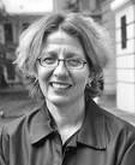 Schamma Schahadat studied Russian and English at the universities of Cologne, Exeter and Moscow; she obtained her Ph.D. and finished her habilitation at the University of Konstanz. Since 2004 she has been a professor for Russian and Polish (specifically modern and contemporary) literatures at the University of Tübingen with an interest in translation studies, cultural theory and semiotics, literary theory, literature and philosophy, gender studies, the interrelation of space and power (e.g. intimacy) and cinema and film theory.
Schamma Schahadat studied Russian and English at the universities of Cologne, Exeter and Moscow; she obtained her Ph.D. and finished her habilitation at the University of Konstanz. Since 2004 she has been a professor for Russian and Polish (specifically modern and contemporary) literatures at the University of Tübingen with an interest in translation studies, cultural theory and semiotics, literary theory, literature and philosophy, gender studies, the interrelation of space and power (e.g. intimacy) and cinema and film theory.
She is the project coordinator of “Textabdrücke” and “TransStar”. Selected publications are:
with Claudia Dathe and Renata Makarska: Zwischentexte. Literarisches Übersetzen in Theorie und Praxis [Intermediary Texts: Literary Translation in Theory and Practice] Berlin 2013; with Konrad Klejsa and Margarete Wach: Der polnische Film von den Anfängen bis zur Gegenwart [Polish Film From its Inception to the Present] Marburg 2012; with Catrin Misselhorn and Irina Wutsdorff, Erkenntnis und Darstellung. Formen der Philosophie und der Literatur [Cognition and Presentation: Forms of Philosophy and of Literature] Paderborn 2011; with Dorothee Kimmich, Kulturen der Leidenschaften – Leidenschaften in den Kulturen [Cultures of Passion – Passion in Cultures] Special edition arcadia, vol. 44 (2009).
STUTTGART, September 2014
The literary editor Uwe Kossack was born in 1949 in Lindau. After he completed his MA in literary studies, philosophy and history in Stuttgart and Tübingen and following a teaching position at the University of Florence, he began working as a journalist for the former station Sender Freies Berlin. Later he switched to SDR in Stuttgart as author, moderator and editor and in the course of the fusion he subsequently moved to Baden Baden. The fact that his passion for literature became his career he still considers to be his great fortune.
Uwe Kossack was actively involved in the foundation of the Literaturhaus Stuttgart right from the beginning and continues to be active regularly as a moderator.
 Dr. Alida Bremer
Dr. Alida Bremer
Foto © Oliver Favre
She was born in 1959 in Split, Croatia, and completed her degree in Comparative Literature Studies, Romance, Slavic and German Studies in Belgrade, Rome, Saarbrücken and Münster. Her PhD she completed in the area of comparative literature studies. For many years she worked as a research assistant and lector at the universities of Münster and Giessen. She was the artistic program director of the book fair in Pula, Istria, the acting manager of the project “Croatia as Focus Country at the Leipzig Book Fair in 2008”, is a freelancer at the S. Fischer Foundation and was awarded a Border Crosser research grant by the Robert Bosch Foundation in the year 2008-2009.
Important publications: Kriminalistische Dekonstruktion: Zur Poetik der postmodernen Kriminalromane [Criminalistic Deconstruction: The Poetics of Postmodern Detektive Stories] (Würzburg 1999); (ed.): Jugoslawische (Sch)Erben: Probleme und Perspektiven [Yugoslavian Heirs: Problems and Perspectives] (Osnabrück 1993); (ed.): Literarischer Reiseführer: Istrien [Literary Travel Guide: Istria] (Klagenfurt/Celovec 2008); (edited together with Silvija Hinzmann and Dagmar Schruf): Südliche Licht. 20 Liebeserklärungen an Kroatien [Southern Light: 20 Declarations of Love for Croatia] (Berlin 2008); (edited together with Hermann Wallmann): Kroatische Literatur der Gegenwart in 6 Bänden [Croatian Literature oft he Present in Six Volumes] (Daedalus Verlag 2008); (edited together with KulturKontakt Austria): Zeitgenössische Literatur aus Kroatien [Contemporary Literature from Croatia] (realized: four volumes, planned: ten volumes); (ed.): Fabula rasa. Oder: Zagreb liegt am Meer / Die kroatische Literatur der letzten 25 Jahre [Fabula Rasa: Zagreb is Located at the Sea / Croatian Literature of the Last 25 Years] Die Horen, Volume 229 (1st Quarter, 2008).
Numerous translations from Croatian, Serbian and Bosnian (poetry, novels, short stories, plays, essays amongst others from Predrag Matvejević, Bora Ćosić, Ivana Sajko, Edo Popović, Miroslav Krleža, Milko Valent, Janko Polić Kamov, Antun Šoljan, Veljko Barbieri, Roman Simić, Delimir Rešicki, Slavenka Drakulić, Jakša Fiamengo, Dragan Velikić, Marija Karaklajić, Milena Marković).
Schamma Schahadat studied Russian and English at the universities of Cologne, Exeter and Moscow; she obtained her Ph.D. and finished her habilitation at the University of Konstanz. Since 2004 she has been a professor for Russian and Polish (specifically modern and contemporary) literatures at the University of Tübingen with an interest in translation studies, cultural theory and semiotics, literary theory, literature and philosophy, gender studies, the interrelation of space and power (e.g. intimacy) and cinema and film theory.
She is the project coordinator of “Textabdrücke” and “TransStar”. Selected publications are:
with Claudia Dathe and Renata Makarska: Zwischentexte. Literarisches Übersetzen in Theorie und Praxis [Intermediary Texts: Literary Translation in Theory and Practice] Berlin 2013; with Konrad Klejsa and Margarete Wach: Der polnische Film von den Anfängen bis zur Gegenwart [Polish Film From its Inception to the Present] Marburg 2012; with Catrin Misselhorn and Irina Wutsdorff, Erkenntnis und Darstellung. Formen der Philosophie und der Literatur [Cognition and Presentation: Forms of Philosophy and of Literature] Paderborn 2011; with Dorothee Kimmich, Kulturen der Leidenschaften – Leidenschaften in den Kulturen [Cultures of Passion – Passion in Cultures] Special edition arcadia, vol. 44 (2009).
KRAKAU, Januar 2014
Radovan Charvát
After his studies at Technical University in Prague (1972) where he was active as a mathematician at the data processing center in Prague (until 1984), he became a freelance translator and journalist. In 1987 he spent one year in Africa. From 1989 to 1990 he studied German, English and American Studies at the J.W. Goethe University in Frankfurt (literary theory, German literature of the 19th century, slang in American English). Since 1989 he is a freelance translator from German and English into Czech. He is divorced and has one child named Jan (*1985).
He translates screenplays into German, conducts simultaneous translations of films on TV and movies, and newspaper articles (Literární noviny, Lidové noviny).
Cooperation with: Austrian Cultural Forum Prague, ARD Studio Prague, Goethe Institute Prague (readings), Suhrkamp Publishers Frankfurt, Hanser Publications Munich, Aufbau Publishers Berlin and Volvox Globator, Prostor, Paseka, Opus and Argo (all in Prag).
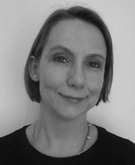 Dr. Antje Contius
Dr. Antje Contius
Since 2008 Antje Contius (born 1966) is the director of the S. Fischer Foundation. As a freelance editor she worked for publishing houses in Austria, Germany and Switzerland with a focus on East European literatures. As consultant in the department responsible for East Europe and the Near East at the foreign office of the Leipzig trade fair, she also pursued this regional focus. Between 1995 and 1998 she was the director of this department. In 2002 she joined the S. Fischer Foundation.
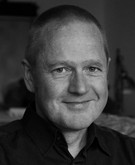 Dr. Olaf Kühl
Dr. Olaf Kühl
Dr. Olaf Kühl is translator, author and a political consultant. He lives in Berlin.
Born in 1955 in Wilhelmshaven, he studied Slavic Languages and Literature at Free University in Berlin. In 1995 he earned his doctorate degree with a thesis on the prose of Witold Gombrowicz. In 2005 he received the Karl Dedecius Prize for his lifetime achievements, in the same year he received the German prize for youth literature for his translation of Dorota Masłowska’s Snow White and Russian Red. With a Border Crosser research grant from the Robert Bosch Foundation he conducted research in 2008 in Siberia and wrote the novel Tote Tiere [Dead Animals] (Rowohlt Berlin, 2011). In winter semester 2011/2012 he was appointed August Wilhelm von Schlegel Visiting Professor for Poetics of Translation at Free University of Berlin.
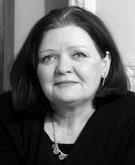 Sława Lisiecka (born 1947) completed her degree in German Language and Literature in 1970 in Lodz. For several years she was a lecturer and docent at the university in Lodz. Since 1978 she is a freelance translator of German-language literature. Until now she has translated approximately 90 books into Polish, amongst others from P. Härtling, T. Bernhard, G. de Bruyn, S. Heym, S. Lenz, S. Nadolny, Ch. Ransmayr, A. Muschg, H. Hesse, J. Zeh, B. Vanderbeke, G.-A. Goldschmidt, K.-M. Gauß, G. Benn, U. Johnson, P. Henisch, G. Jonke. She also translates plays (amongst others by Günter Grass, Elfriede Jelinek, Georg Tabori, Rainer Werner Fassbinder, Moritz Rinke, Juli Zeh) and poetry (amongs others by Ingeborg Bachmann, Hans Magnus Enzensberger, Günter Grass, Christine Koschel, Tina Stroheker, Gottfried Benn, Thomas Bernhard).
Sława Lisiecka (born 1947) completed her degree in German Language and Literature in 1970 in Lodz. For several years she was a lecturer and docent at the university in Lodz. Since 1978 she is a freelance translator of German-language literature. Until now she has translated approximately 90 books into Polish, amongst others from P. Härtling, T. Bernhard, G. de Bruyn, S. Heym, S. Lenz, S. Nadolny, Ch. Ransmayr, A. Muschg, H. Hesse, J. Zeh, B. Vanderbeke, G.-A. Goldschmidt, K.-M. Gauß, G. Benn, U. Johnson, P. Henisch, G. Jonke. She also translates plays (amongst others by Günter Grass, Elfriede Jelinek, Georg Tabori, Rainer Werner Fassbinder, Moritz Rinke, Juli Zeh) and poetry (amongs others by Ingeborg Bachmann, Hans Magnus Enzensberger, Günter Grass, Christine Koschel, Tina Stroheker, Gottfried Benn, Thomas Bernhard).
In addition she has published in many Polish literary journals fragments of works by Peter Handke, Elias Canetti, Ödön von Horváth, Ludwig Harig, Franz Hessel, Franzobel and others. For many years now she has translated philosophical, psychological, literature critical and sociological works (amongst others by Ludwig Wittgenstein, Victor Chu, Martin Heidegger, Hans Mayer) and also numerous translations in art catalogues.
She has been awarded a stipend by the German Literature Fund, the Robert Bosch Foundation, Perewest Foundation, German Academic Exchange Service (DAAD), the European Translator Centre and the Austrian Assosiation for Literature. In 1985 she received the translator price from the Robert Bosch Foundation and the German Poland Institute, in 2007 the Austrian National Prize for literary translators of Austrian literature – Translatio, in 2009 the prize of the Polish monthly Literatura na świecie [Literature in the World] for the translation of the novel Mutmaßungen über Jakob [Speculations about Jakob] by Uwe Johnson. On May 8 in 2012 she was awared the prize of the NRW Foundation at the European Translator Centre in Straelen/Germany for her lifetime achievement with a special consideration of her translation of Thomas Bernhard’s works. Currently she works on the translation of: Kunst und Künstler [Art and Artist] by Otto Rank and Menschliches, Allzumenschliches [Human, All Too Human] by Friedrich Nietzsche.
She is married to Zdzisław Jaskuła with whom she translated amongst others Also sprach Zarathustra [Thus Spoke Zarathustra] by Friedrich Nietzsche, a large selection of poems by Ingeborg Bachmann entitled Erklär mir, Liebe [Explain to Me, Love] and the selection of poems ‘Nie einsamer’ und andere Gedichte [Never More Lonely and Other Poems] by Gottfried Benn. Currently both have been working on the translation of about 80 selected poems by Thomas Bernhard.
In 2007 she received the Officer’s Cross of the Order of Polonia Restituta by the President of Poland for her outstanding achievements for the independence of Poland (1975-1989), for cultural and oppositional activities in support of democratic transformations and for her current professional activities.
In 2011 she was awarded the prize of the city of Lodz for her achievements.
 Iwona Nowacka studied German Studies and Literature at the Adam Mickiewicz University in Poznań and Universita degli Studi di Macerata in Italy and works as a translator, coordinator and curator of theater and literature projects. She has translated plays by Werner Fritsch, Juli Zeh, Gesine Danckwart, Jan Fabre, Stephan Seidel, Carsten Brandau, Lothar Kittstein and Martin Heckmanns into Polish as well as prose by Annette Mingels, Richard Obermayr and others. She has also worked with stage directors such as Paweł Łysak, Piotr Kruszczyński, Marcin Liber, Grażyna Kania and Natalia Sołtysik. Until the present she has worked for the National Theater Mannheim, the Hauptmann Theater in Zittau, Landesbühne (regional theater) Nord in Wilhelmshaven, the Volkstheater (people’s theater) Vienna, Teatr Dramatyczny in Warsaw and the Teatr Dramatyczny in Wałbrzych. In addition she translates for the journals Theater der Zeit, nachtkritik and the Polish theater portal e-teatr.pl as well as for the Ukrainian-German literary journal radar. She works as a language coach for film, TV and theater. She was recipient of a fellowship at the International Schiller Festival in Mannheim, in the Villa Decius in Krakau, the Foundation for German-Polish Cooperation, at the Baltic Centre of Writers and Translators in Visby and the Polish Ministry of Culture.
Iwona Nowacka studied German Studies and Literature at the Adam Mickiewicz University in Poznań and Universita degli Studi di Macerata in Italy and works as a translator, coordinator and curator of theater and literature projects. She has translated plays by Werner Fritsch, Juli Zeh, Gesine Danckwart, Jan Fabre, Stephan Seidel, Carsten Brandau, Lothar Kittstein and Martin Heckmanns into Polish as well as prose by Annette Mingels, Richard Obermayr and others. She has also worked with stage directors such as Paweł Łysak, Piotr Kruszczyński, Marcin Liber, Grażyna Kania and Natalia Sołtysik. Until the present she has worked for the National Theater Mannheim, the Hauptmann Theater in Zittau, Landesbühne (regional theater) Nord in Wilhelmshaven, the Volkstheater (people’s theater) Vienna, Teatr Dramatyczny in Warsaw and the Teatr Dramatyczny in Wałbrzych. In addition she translates for the journals Theater der Zeit, nachtkritik and the Polish theater portal e-teatr.pl as well as for the Ukrainian-German literary journal radar. She works as a language coach for film, TV and theater. She was recipient of a fellowship at the International Schiller Festival in Mannheim, in the Villa Decius in Krakau, the Foundation for German-Polish Cooperation, at the Baltic Centre of Writers and Translators in Visby and the Polish Ministry of Culture.
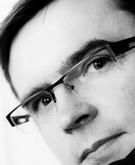 Dr. Paweł Zarychta studied German Studies between 1995 and 2000 and in 2006 completed his dissertation on Lessing’s poetics in the antiquarian conflict. Currently he is the senior researcher at the Institute of German Philology at the Jagiellonen University in Krakow. Research interests include: Lessing, contemporary German literature, literary rhetoric, translation theory and practice. He has published texts on Lessing, German-Polish literary contacts, intertextual references between the Bible and literature and is active as a freelance translator. Important publications are: Spott und Tadel”. Lessings rhetorische Strategien im antiquarischen Streit. [“Ridicule and Criticism”: Lessing’s Rhetorical Strategies in the Antiquarian Conflict.] Frankfurt/Main, Berlin, Bern, New York: Peter Lang 2007, with Jan Röhnert, Jan Urbich and Jadwiga Kita-Huber (ed.): Authentizität und Polyphonie. Beiträge zur deutschen und polnischen Lyrik seit 1945. [Authenticity and Polyphony: Texts on German and Polish Poetry Since 1945] Heidelberg: Winter 2008, with Maria Kłańska and Jadwiga Kita-Huber (ed.): Der heiligen Schrift auf der Spur. Beiträge zur biblischen Intertextualität in der Literatur. [On the Tracks of Holy Scripture: Texts on Biblical Intertextuality in Literature] Wrocław-Dresden: Atut-Neisse Publishers 2009, with Ingo Breuer and Katarzyna Jaśtal (ed.): Gesprächsspiele & Ideenmagazine [Conversational Games & Idea Repositories].
Dr. Paweł Zarychta studied German Studies between 1995 and 2000 and in 2006 completed his dissertation on Lessing’s poetics in the antiquarian conflict. Currently he is the senior researcher at the Institute of German Philology at the Jagiellonen University in Krakow. Research interests include: Lessing, contemporary German literature, literary rhetoric, translation theory and practice. He has published texts on Lessing, German-Polish literary contacts, intertextual references between the Bible and literature and is active as a freelance translator. Important publications are: Spott und Tadel”. Lessings rhetorische Strategien im antiquarischen Streit. [“Ridicule and Criticism”: Lessing’s Rhetorical Strategies in the Antiquarian Conflict.] Frankfurt/Main, Berlin, Bern, New York: Peter Lang 2007, with Jan Röhnert, Jan Urbich and Jadwiga Kita-Huber (ed.): Authentizität und Polyphonie. Beiträge zur deutschen und polnischen Lyrik seit 1945. [Authenticity and Polyphony: Texts on German and Polish Poetry Since 1945] Heidelberg: Winter 2008, with Maria Kłańska and Jadwiga Kita-Huber (ed.): Der heiligen Schrift auf der Spur. Beiträge zur biblischen Intertextualität in der Literatur. [On the Tracks of Holy Scripture: Texts on Biblical Intertextuality in Literature] Wrocław-Dresden: Atut-Neisse Publishers 2009, with Ingo Breuer and Katarzyna Jaśtal (ed.): Gesprächsspiele & Ideenmagazine [Conversational Games & Idea Repositories].
Heinrich von Kleist und die Briefkultur um 1800 [Heinrich von Kleist and the Culture of Correspondence Around 1800], Böhlau: Köln 2013. Translations, i.a.: Immanuel Kant: Ugruntowanie metafizyki moralności (Groundwork on the Metaphysics of Morals). Kraków: Zielona Sowa 2005, Dieter Schenk: Noc morderców. Mord polskich profesorów we Lwowie i holokaust w Galicji Wschodniej [The Lemberg Murder of a Professor], Kraków 2011, Dieter Schenk: Krakow Fortress. Wawel jako ośrodek władzy generalnego gubernatora Hansa Franka w latach 1939–1945, Kraków 2013.
 Dr. Tanja Žigon
Dr. Tanja Žigon
Graduated in German Language and Literature and History. From 1998 to 2004 she worked and published as a freelance researcher. In 2004 and 2007 she conducted research within various projects and scholarships in Udine, Vienna and Munich. In 2008 she received a doctorate in Literary Studies. Since 2003 she has been employed at the Faculty of Arts in Ljubljana and is an assistant professor of Translation Studies. Since 2013 she has headed the research program Intercultural Literary Studies, financed by the Slovene Research Agency. She is a member of the consortium of the TransStar EU project, and she is the coordinator of the Slovene part of the project. Her research focuses on German-Slovene relations and interactions and on culture-oriented aspects of Translation Studies. Tanja Žigon is the author of numerous research articles and two books that deal with German-Slovene cultural contacts and connections between nineteenth-century newspapers and literary publications in Carniola. She translates from German into Slovene, especially historical texts and archival sources.
Relying on the structure and methodology of classical and postclassical [...]
For further information on translation, the TransStar project and the [...]
Relying on the structure and methodology of classical and postclassical [...]
Sir or Madam, In co-operation with KulturKontakt Austria, the Austrian [...]
Five short films with translations (videopoetry) were made as part [...]
Translating Cube: Six Sides of European Literature and Translation Berlin, [...]
Programme (PDF)
Five short films with translations (videopoetry) were made as part [...]
Translating Cube: Six Sides of European Literature and Translation Berlin, [...]
Programme (PDF)
Translating Cube in Tübingen Reinold Hermanns: SWR2 Journal am Mittag, [...]
Being Exchanged: Between Paris, Stuttgart and Ivano-Frankivsk Yuri Andrukhovytsh, Lubomír [...]
Five short films with translations (videopoetry) were made as part [...]
Bookstore: http://www.edition-fototapeta.eu/geschichten-erzaehlen
More here (PDF). Bookstore: https://knjigarna.ff.uni-lj.si/si/izdelek/1623/pet-poti-do-prevoda/
Five short films with translations (videopoetry) were made as part [...]
Bookstore: http://www.edition-fototapeta.eu/geschichten-erzaehlen
More here (PDF). Bookstore: https://knjigarna.ff.uni-lj.si/si/izdelek/1623/pet-poti-do-prevoda/
Translating Cube: Six Sides of European Literature and Translation Berlin, [...]
Programme (PDF)

